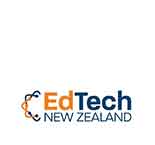Nga mihi,
The New Zealand Productivity Commission has released their first draft report New Zealand, technology and productivity which EdTechNZ made our own submission to earlier this year.
David Glover, a member of the EdTechNZ Executive Council, had this to say: The Commission’s report challenges the narrative of the last few years that the rate of technological advancement in automation and artificial intelligence will create wholesale job destruction. It’s more nuanced conclusion is that job roles will need to evolve as new technologies become mainstream, but new jobs will also be created – as they always have. But the main problem for New Zealand is not too much technology – it’s too little:
“By failing to pick up and spread the world’s best technologies, New Zealand has lost opportunities to gain higher living standards. The path to greater wellbeing lies with more technology adoption and diffusion.”
A second key take-out concerns the need to retrain the existing workforce, perhaps a higher priority even than focusing on skills for young learners who, after all, are already familiar with and increasingly confident in a digital-first environment. Many of the submissions from industry focused on the critical urgency to address workforce skills. This is a challenge to an education system that is primarily focused on the schooling and tertiary sectors.
EdTech NZ will continue to engage with the Commission as we feel that technological change and the future of work is not only an important issue, it is also core to EdTechNZ’s mission.
Tara Fagan, chair of our Digital Skills working group, has been involved in a project that is a great use case of the creative use of AR and VR in education. With headset costs continuing to drop significantly, barriers to access, particularly VR where they have historically been high, is fast becoming a thing of the past, which in turn has the prospect of improving social equity.
Pauline Cleaver, Senior Manager Curriculum, Teaching and Learning at the Ministry of Education, has written an interesting blog on the future-focus of New Zealand’s National Curriculum. This future focus is on the skills required for, not just the future of work but also our daily lives, which are (in my view) largely inseparable in a modern world. It also touches on some of the challenges around digital citizenship and privacy. To use Paula’s’ final comment – “we hope that you’ll join us in this journey – and help to inspire this positive movement focussed on our children, their future, and the transforming digital world.”
Haere rā
Shane Kerr
Chair
Events and News
Over 1,000 Kiwi educators attended the CORE uLearn19 conference in Rotorua earlier this month. Check out their learnings.
Kiwi female tech leaders talk about their non-traditional journeys into ICT careers.
Here are four EdTech apps changing the way that people learn.
The world’s first AI university will open in Abu Dhabi next year.
Celebrate the tech export sector highlights at the 2019 TIN Report Launch and Awards on 31 October in Auckland.
Meet the Chasm Institute’s Mark Cavender at NZSA on 11-12 November in Auckland for Escape Velocity and 12 November for Crossing the Chasm.
Tech Alliance members receive 10 percent off the ticket price for the advancing women in technical and industries roles conference on 25 November in Auckland.
Attend the NZ Hi-Tech Awards alumni event and launch event on 27 November in Auckland. Also, 3 December in Wellington and 4 December in Christchurch.
BIOTechNZ is hosting New Zealand’s first medicinal cannabis summit, MedCan 2020.








